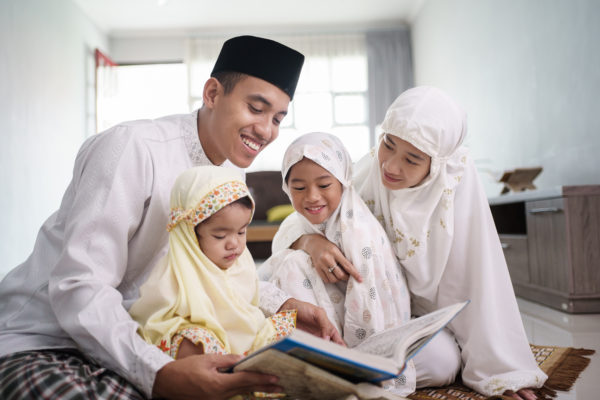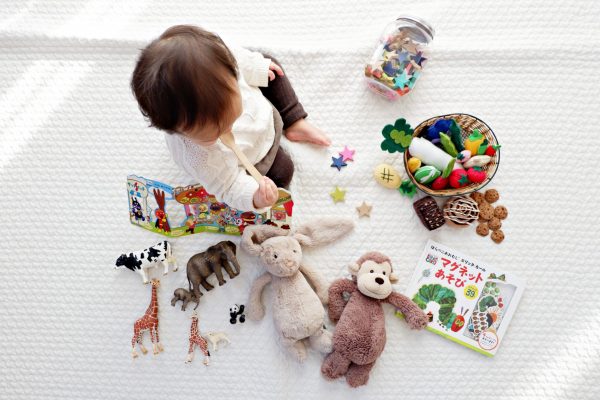Yes, living temporarily from place to place comes at a price. However, the gains in terms of identity, friendships, and humility, have proven why the packing and unpacking of boxes over the years has been worthwhile.
Yes, living temporarily from place to place comes at a price. However, the gains in terms of identity, friendships, and humility, have proven why the packing and unpacking of boxes over the years has been worthwhile.
It would seem that a life of being constantly on the move – never having the chance to settle in one place for too long and get to know your surroundings – is a formula for personal ruin. Add to that an entourage of young children and the situation suddenly becomes a whole lot more complicated.
Any rational parent would argue that financial, emotional, social, and even geographical stabilities are the prerequisites for nurturing a well-rounded child. Whilst that may be true, the lived realities of many people often fall far short of that ideal. The reasons for that are many and wide.
In particular, the desire to remain in one place long-term is sometimes overridden by practical considerations. Some families find themselves having to relocate home because of a new job, a better house or to be closer to extended family. The questions then arise: “Will my children be deprived of a happy life with constant relocations? What impact will this have on their emotional wellbeing?”
In my own experience, both as a child and later as a mother, I have lived across different continents, cultures, and climates. I am what I would call a ‘modern-day urban nomad’. During the 18 years of my married life alone, I lived in as many places! There is no denying that always being on standby, ready to pack up and move on to the next destination is both physically and emotionally gruelling.
The practical job of collecting one’s worldly possessions and transporting them across the miles is also an arduous one. Then, arriving at the next temporary stop there is the reluctant but unavoidable task of unpacking again and going through the whole process once more. Doing that for oneself is a tough job in itself. Doing that on behalf of one’s own children is incredibly more demanding.
Yet, it is not simply the drudgery of moving material possessions that is exhausting. In shifting my children between homes and schools in different countries, usually not more than a couple of years at a time, they were not been able to plant their feet firmly on the ground before it was time to move on again. They sometimes complained of the abrupt end of their time in a particular place when they had just settled into a routine.
Of course, as parents, that was undeniably painful to hear. However, the reasons for moving were not whimsical ones. We were always in search of the best options, be it education, spiritual well-being or social milieu – especially for them. I admit I questioned my actions, wondering if we were trying to chase a utopia that never existed. Would there be long-term negative repercussions of an itinerant lifestyle on my children? Yet, Alhamdulillah, looking at them today as sensible young adults, I feel the choice we made as parents were justified.
Unlike adults, I believe that young children have an innate innocence and purity of thought which helps them approach a situation with an open-mindedness. They come to a new situation with an inquisitive mind and therefore fewer expectations. As in my own childhood, I have seen my sons strive to make the best of each social situation that they have been exposed to.
Over the years, they have lived amongst a variety of cultures, languages, customs, and even religions. The net result is that they realise there is no one perfect way of living. Even where they encountered fellow Muslims who represented different ethnic and social backgrounds, that cultural exchange was important in helping them understand the diverse composite parts of this great monolithic belief system called Islam.
As a result, today, cultural dogma has no place in their world. What they (and I) have seen is that a community is a beautiful social tapestry made of individual parts but which each brings their colourful contribution to the whole. The result is quite striking.
Arguably, the experience of being inured in other societies has actually made my sons more reflective and appreciative of their own personal identities. At home, an understanding of what it means to be Muslim was inculcated at a young age. Taking that self-awareness into the public domain, even where they were the anomalies, has therefore not threatened their Muslim identity since they know this transcends all the other parts that make them whole.
This was essential preparation for when they came to live amongst other communities whose customs and traditions were very different from their own. It meant that they were able, to a large extent, to discern culture from religion. The important lesson they learned was that difference is not a synonym for deviance. It simply means there is more than one way to arrive at the same conclusion.
For example, in Saudi Arabia, they discovered it is the social norm for the host of a dinner party not to sit with his/her guests when food is served. This is a way to honour the guests and give them undivided attention. The host only eats after everyone else has been taken care of. Whilst that social etiquette may seem alien to many, it does not contradict Islam and does not make Saudi culture any less or better than others. It is simply their interpretation of hospitality. It is these kinds of nuances in Islamic culture that can only ever be gleaned from having had personal interactions with people different from ourselves.
As a witness to their young lives, I will not pretend and say that the encounters my sons had with their peers have always been positive. There have been the unsavoury characters too. Yet, that is the lesson in itself. It is impossible to like and be liked by everyone. That is not even the goal but the negative experiences have led to the character-building process of the individual.
So, despite their complaints about the real drudgery of nomadic life, I know in hindsight, that my sons acknowledge they have also had an enviable life of adventure, Alhamdulillah. This is something I share in common with them. I myself was uprooted from London as a child and spent three years abroad. At the time, I resented the upheaval but now I consider it one of the most enlightening experiences I have ever had. Ostensibly, my childhood peers who I had left behind were more fortunate given they continued to enjoy a static and sheltered life. But this dull continuity has today rendered those same people unable to cope with anything outside the familiar.
Living in a monoculture can lead to complacency about life itself. Interacting with a variety of people can actually be an enriching experience. Children and adults alike often become more mindful of their social environment and of their own values and belief systems. It does not always have to be the case that our children will capitulate to peer pressure. As long as they are confident about who they are, they will not necessarily succumb. It is even possible that through observation of others, they will understand that there are alternative – perhaps even better – ways of living as Muslims. It is an invaluable lesson in humility.
In terms of meaningful friendships, some might argue that it is difficult to carry these forward through time when someone has been uprooted too often. Whilst I do not deny this is a real issue for many people, Alhamdulillah, it is still possible to stay connected with several quality friends who all sit on that linear thread through one’s life. My own sons have friends scattered across the world and meeting up in person has not been possible in many cases. However, the connection is real and it still continues. It is proof that despite meeting and dispersing, they have found a commonality that supersedes their apparent differences and which bonds them across the miles. Thankfully, in the internet age, the task of keeping in touch is now much easier.
For anyone contemplating a new start in another country with a young family, I would say that to live as an ordinary citizen in a foreign land is an education not to forfeit lightly. Some of the most well-rounded and humble human beings I know are those who have allowed themselves to be immersed in other cultures and societies. They have surrendered the dogma of their own societal traditions and opened up to the possibility of doing things in alternative ways. In return, they exude an aura of humility and tolerance which are, in my opinion, qualities that are ironically missing in today’s global village.
By the same token, it would be wrong to assume those who have not had such exposure are cultural chauvinists. What is true though, is that an inward-looking aloofness can lead to arrogance. It is something I have consciously tried to steer my children away from. What better way than being in the midst of a host community where daily challenges to preconceived ideas arise?
So, yes, living temporarily from place to place comes at a price. However, the gains in terms of identity, friendships, and humility, have proven why the packing and unpacking of boxes over the years has been worthwhile. Today, I see my sons as young men able and willing to interact with a myriad of people and yet be true to who they are themselves. They are uncompromising but respectful. They are confident but humble. They are young but exude maturity for their age.
Above all, the most valuable lesson has been that the inconveniences of an itinerant lifestyle are a constant reminder of the ephemeral nature of this world itself. I am hopeful that this lesson is also not lost on my children.





